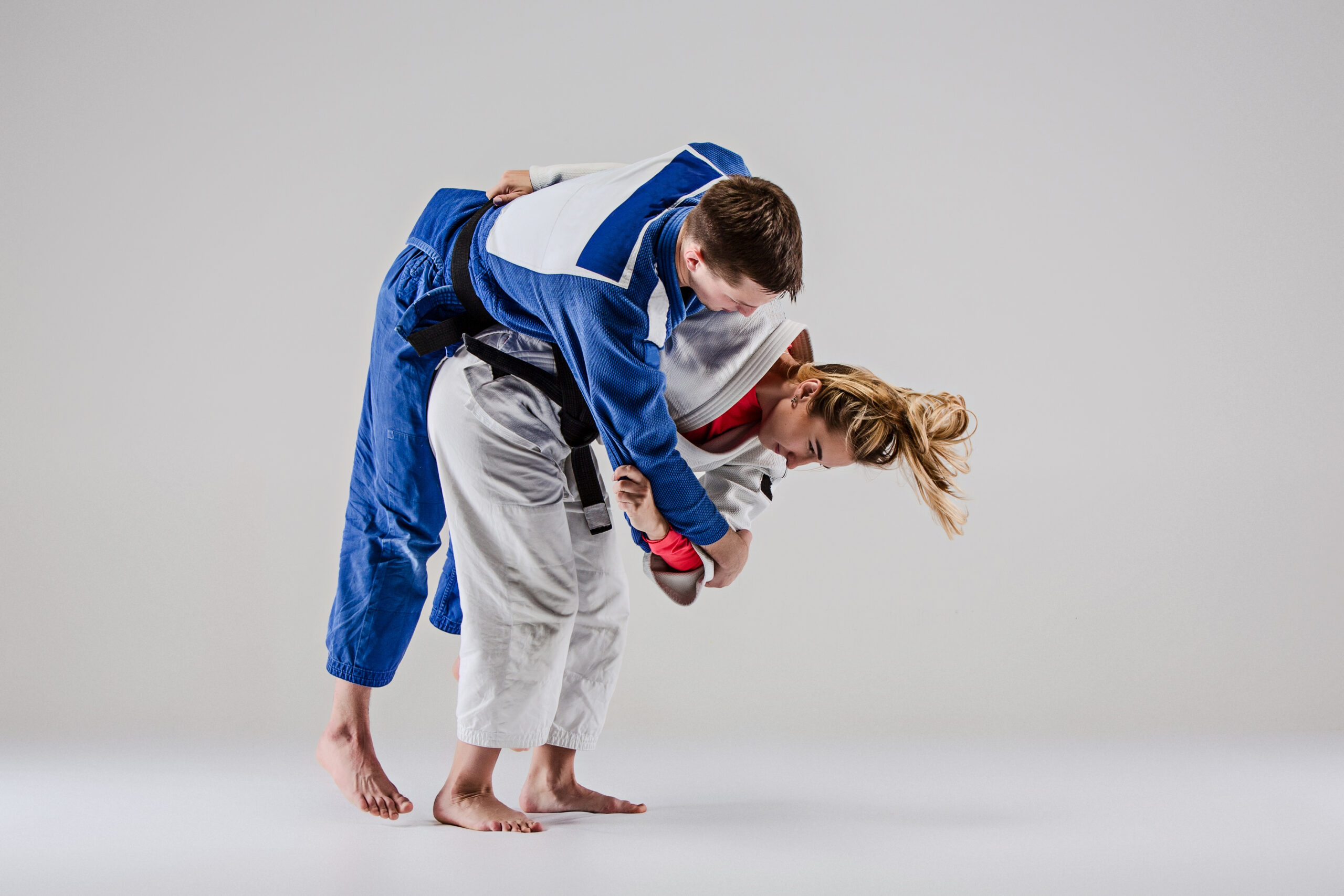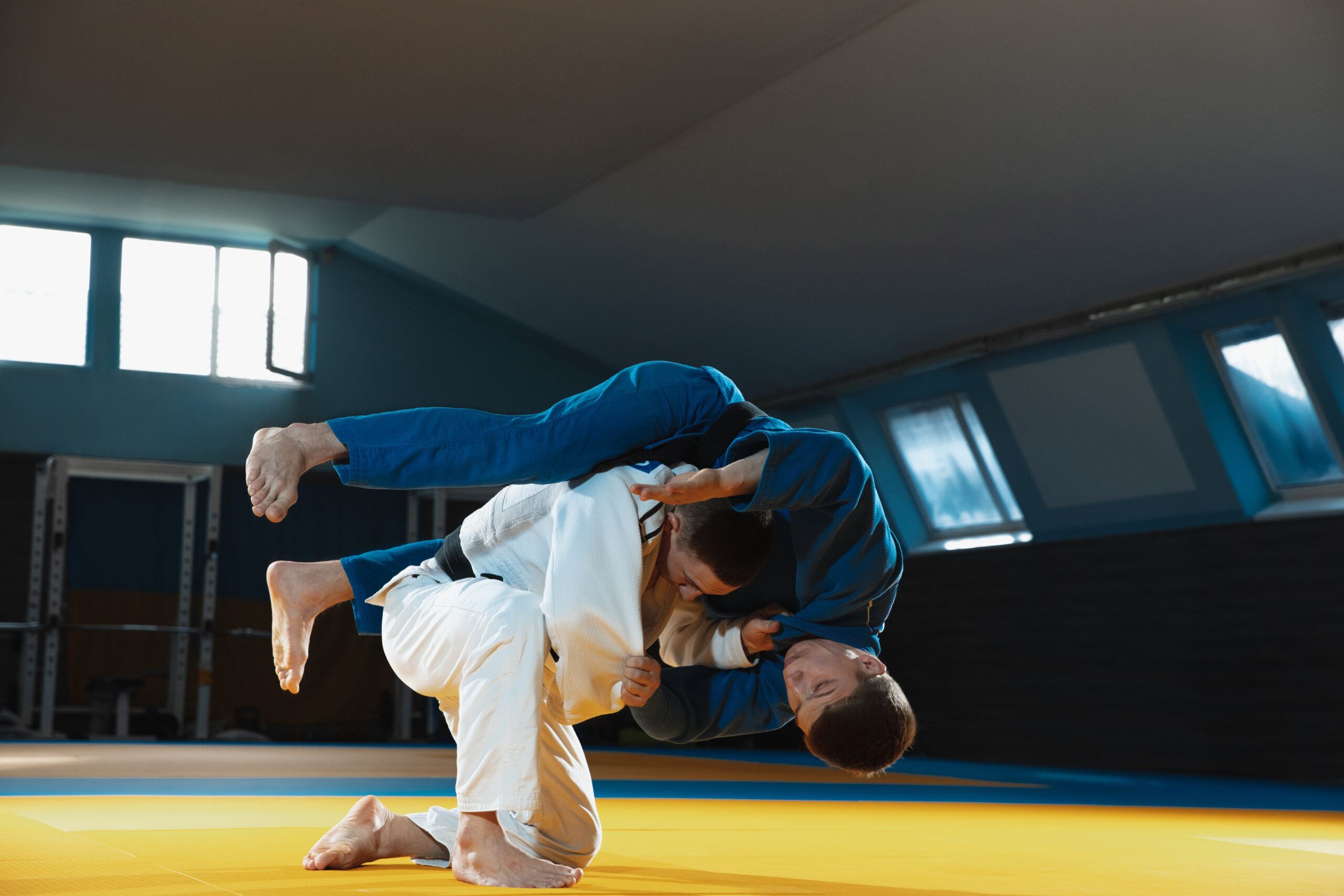JUDO A Powerful Form Of Self-defense

Judo is a modern combat, and Olympic sport created in Japan in 1882 by Jigoro Kano. The most prominent feature is the competitive element. The goal is to knock the opponent to the ground. Punches and kicks with arms and legs, as well as defense with weapons are part of judo, but only in pre-arranged forms (kata). They are not allowed in judo matches or free training. A judo practitioner is called a judoka. The worldwide spread of judo led to the development of a number of branches such as Sambo and Brazilian Jiu-Jitsu.
Judo is derived from the Japanese words jū (柔) meaning “gentle” and dō (道) meaning “way”. The goal of judo is to use the opponent’s strength against him and avoid relying on his own physical strength. The philosophy of judo is to maximize efficiency with minimum effort and avoid confrontation. It teaches the rules for flexibility in the application of technique and emphasizes the development of balance, power, and timing.
The training is divided into three main components: randori (free exercise), kata (forms), and shiai (competition). The sport can be practiced either as a recreational activity or as a way of life.
The rules of judo
Judo is a full-body exercise that combines throws, joint locks, and choke holds. The rules of judo are simple and clear. When competing, judokas (judo practitioners) must wear the correct uniform and follow the rules and regulations of the sport. During the match, the judokas must remain standing until one of them is thrown on their back, or pinned for 25 seconds. If both competitors are still standing after the allotted time, the match is declared a draw.
Judokas are prohibited from punching or kicking their opponents, as well as using any weapons. They are not allowed to intentionally injure their opponent or engage in any behavior that could be considered unsportsmanlike. Judokas must respect both their opponents and the referee at all times.
Judo is an incredibly powerful form of self-defense and is a great way to stay in shape. It has many benefits, including physical, mental, and social benefits.
Physically, judo is an excellent form of exercise and promotes overall fitness. It helps build strength and flexibility. To increase balance and agility and improve coordination. Improves endurance and cardiovascular health.
Mentally, judo helps improve focus, concentration, and self-discipline. Practicing judo requires a great deal of mental focus and discipline.
Socially, judo can help build relationships with other practitioners and develop leadership skills. It’s a great way to relieve stress and anxiety, as it helps clear the mind. Judo helps to strengthen self-confidence. It is a great activity for both children and adults. It can be a fun and rewarding experience for all who practice it.
Judo is an ancient martial art that has been around for centuries. It relies on the principles of balance, leverage, and timing to gain an advantage against your opponent. The main objective of judo is to take control of the opponent by using various techniques, such as throws, holds and submission holds. Judo also emphasizes the development of physical fitness, mental discipline, and self-defense skills. In order to be successful in judo, it is important to understand the various techniques and strategies involved.

Important techniques used in judo
Throws are one of the most important techniques used in judo. They allow the judoka (judo practitioner) to gain control over the opponent and force him into a more vulnerable position.Throws can be divided into two categories: standing throws and ground throws. Standing throws involve using the momentum of the opponent’s body to throw them off balance and onto their backs. While ground throws involve using leverage and timing to get the opponent’s back. Holds are another important technique in judo. Holds allow the judoka to control his opponent. Used to set up throws or submission holds. Submission holds involve using techniques such as arm locks, chokes, and wrist locks to force an opponent to submit.
Finally, mental discipline is an important part of judo, as it allows the judoka to stay focused on his opponent and make good decisions in the heat of battle.
